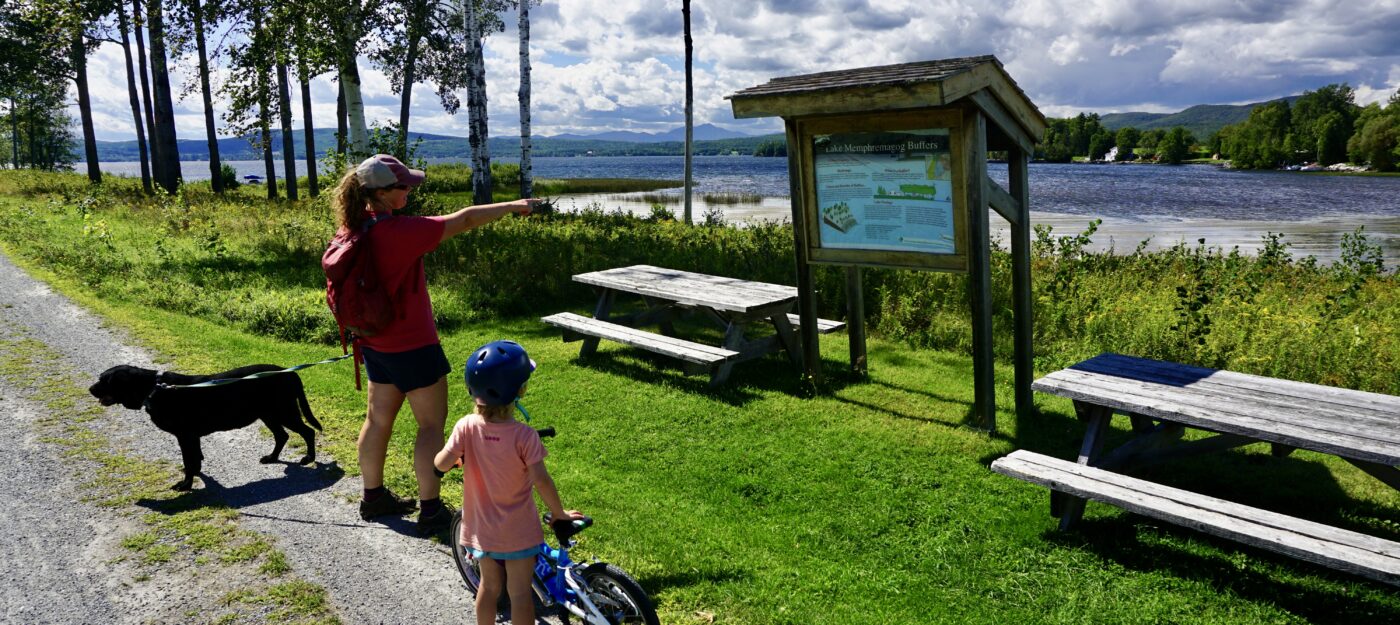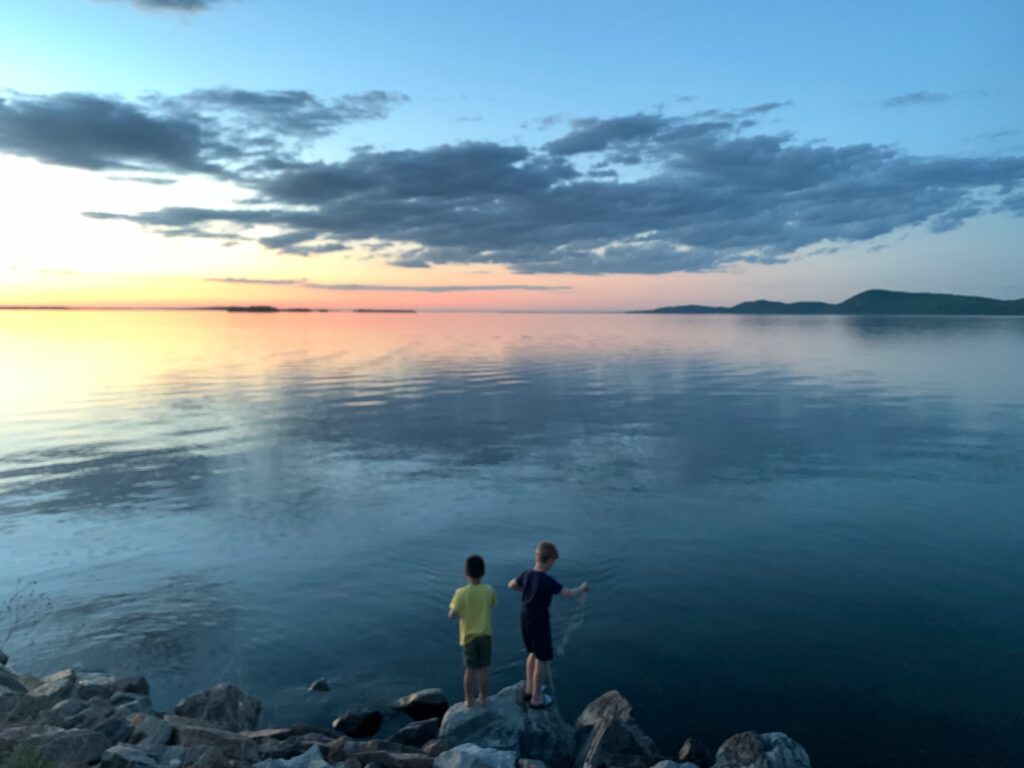
We know the phrase, “sharing is caring”, but what does that look like in practice at our rivers?
This means picking up food scraps, taking care of your pet’s waste, avoiding poison ivy & ticks, and being safe by staying on the trails. We asked a few community members how they “Leave No Trace” while caring for our rivers and their kids. Here’s what they had to say:
“Staying on trails is important so that you don’t get lost. Also, bank erosion happens when land comes down and the water washes away the surface. That also happens when people walk too close to the water. And you can fall in!” says Ben Powers of Middlebury to his 3 sons. Ben and his family enjoy spending quality time, swimming, and walking at Lake Champlain and Lake Dunmore.

Lake Champlain sand bar. PC: Gregory DeVries
Tania Hernandez, a student living in Vermont for the summer, emphasizes the importance of scoping out the swimming hole. “There may be sharp rocks, and it may be colder than you would expect. You don’t want to jump in and panic, causing you to inhale water because you weren’t expecting the water to be very cold!” She reminds her friends and family, Para estar más seguro cuando estés nadando en el río, asegúrate de ver la temperatura de el agua. No quieres brincar en el agua sin ver la temperatura. Si no vas a brincar como un gato y respirar agua. También puedes pisar rocas o objetos que te pueden cortar y dejare sin poder nadar.
So, before you go to your next outdoor adventure, remember:
Rivers are fragile: Stay on trails to reduce erosion and protect local biodiversity
Ditch the Itch: Stay on signed trails to avoid Poison Ivy. It has 3 leaves, and it’s light green and could have a little bit of red.
Stash your Trash…and even take home others’ trash to leave the site better than you found it.
Scoop the poop. Have your dog on a leash! Dog waste is bad for rivers.
Did you know that a single gram of dog poop can contain 23 million bacteria? Rain washes bacteria and nutrients in pet waste left on the ground into nearby rivers and streams. None of that bacteria belongs in our water! Scoop the poop to protect local waterways!
Kick the ticks. Always check for ticks, and take a shower as soon as possible when you get home.
Have a Plan. Research ahead of time to find out if your day’s destination has a restroom or trash cans available. If not, have a plan!